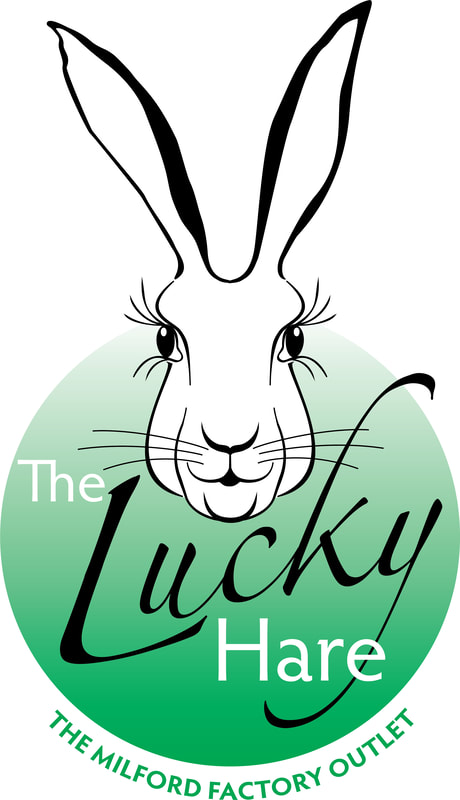Hare Poems
|
All Things that Love the Sun (from Resolution and Independence)
All things that love the sun are out of doors; The sky rejoices in the morning’s birth; The grass is bright with rain drops; - on the moors The hare is running races in her mirth; And with her feet she from the plashy earth Raises a mist, that glittering in the sun, Runs with her all the way, wherever she doth run William Wordworth Some Fearful Hare So I have seen some fearful hare maintain A course, till tir’d before the dog she lay; Who, stretch behind her, pants upon her plain, Past pow’r to kill, as she to get away: With his loll’d tongue he faintly licks his prey; His warm breath blows he flix up as she lies; She, trembling, creeps upon the ground away, And looks back to him with beseeching eyes John Dryden Hares at Play The birds are gone to bed, the cows are still, And sheep lie panting on each old mole-hill; And underneath the willow's gray-green bough, Like toil a-resting, lies the fallow plough. The timid hares throw daylight fears away On the lane's road to dust and dance and play, Then dabble in the grain by naught deterred To lick the dew-fall from the barley's beard; Then out they sturt again and round the hill Like happy thoughts dance, squat, and loiter still, Till milking maidens in the early morn Jingle their yokes and sturt them in the corn; Through well-known beaten paths each nimbling hare Sturts quick as fear, and seeks its hidden lair. John Clare (1793-1864) The Hare In the black furrow of a field I saw an old witch-hare this night; And she cocked a lissome ear, And she eyed the moon so bright, And she nibbled o' the green; And I whispered“Whsst! witch-hare”, Away like a ghostie o'er the field She fled, and left the moonlight there. Walter de la Mare Epitaph on a Hare Here lies, whom hound did ne'er pursue, Nor swifter greyhound follow, Whose foot ne'er tainted morning dew, Nor ear heard huntsman halloo. Old Tiney, surliest of his kind, Who, nursed with tender care, And to domestic bounds confined, Was still a wild Jack-hare. Though duly from my hand he took His pittance every night, He did it with a jealous look And, when he could, would bite. His diet was of wheaten bread, And milk, and oats, and straw; Thistles, or lettuces instead, With sand to scour his maw. On twigs of hawthorn he regaled, On pippins' russet peel, And when his juicy salads failed, Sliced carrot pleased him well. A Turkey carpet was his lawn, Whereon he loved to bound, To skip and gambol like a fawn, And swing his rump around. His frisking was at evening hours, For then he lost his fear, But most before approaching showers Or when a storm drew near. Eight years and five round-rolling moons He thus saw steal away, Dozing out all his idle noons, And every night at play. I kept him for his humour's sake, For he would oft beguile My heart of thoughts that made it ache, And force me to a smile. But now beneath his walnut shade He finds his long last home, And waits, in snug concealment laid, Till gentler puss shall come. He, still more aged, feels the shocks, From which no care can save, And, partner once of Tiney's box, Must soon partake his grave. William Cowper The Garden Well--one at least is safe. One shelter'd hare Has never heard the sanguinary yell Of cruel man, exulting in her woes. Innocent partner of my peaceful home, Whom ten long years' experience of my care Has made at last familiar; she has lost Much of her vigilant instinctive dread, Not needful here, beneath a roof like mine. Yes--thou may'st eat thy bread, and lick the hand That feeds thee; thou may'st frolic on the floor At evening, and at night retire secure To thy straw couch, and slumber unalarm'd; For I have gain'd thy confidence, have pledg'd All that is human in me to protect Thine unsuspecting gratitude and love. If I survive thee I will dig thy grave; And, when I place thee in it, sighing, say, I knew at least one hare that had a friend. William Cowper Mu-lan Facing the window she fixes her cloudlike hair, Hanging up a mirror she dabs on yellow flower-powder. She goes out the door and sees her comrades. Her comrades are all amazed and perplexed. Traveling together for twelve years They didn't know Mu-lan was a girl. “The he-hare's feet go hop and skip, The she-hare's eyes are muddled and fuddled. Two hares running side by side close to the ground, How can they tell if I am he or she?” Anonymous (5th or 6th century A.D.) |


